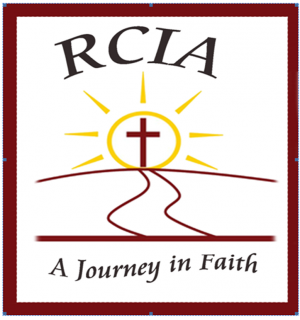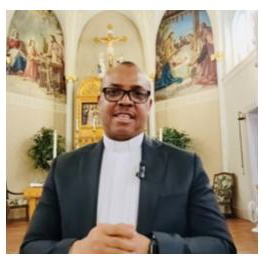The Rite of Catechetical Instruction for Adults, RCIA, has recently made some changes to the way it educates and brings adults into full communion with the Church.
In the past, each year a new group of inquirers would be formed. These individuals, regardless of their history, would go through catechesis until Easter. Then at the Easter vigil, they would receive the sacraments necessary for them to enter into full communion with the Church. Now, in accordance with the instructions from our Bishop, RCIA will no longer be a one group program. Instead, there will be two groups that will prepare for initiation into the Church depending on their history and knowledge level.
Baptized Adults – Adults that are already baptized in the Trinitarian form, most Protestants, Catholic, and Greek religions, will enter into a shorter time of catechesis. These classes will start in January and July every year; with the January class receiving their initiation sacraments during the Easter season, and, the July class receiving their sacraments in the beginning of Advent. The classes will have a format of a teaching and dialogue that will enrich their current knowledge level and bring them to the point necessary to worthily receive the sacraments.
Non-Baptized Adults – Individuals that have not been baptized, or that were baptized in a non-Trinitarian religion, will form the other group. This group will begin August. These individuals will participate in a more in-depth instruction regarding the Trinity and the Church. They will receive their sacraments at the Easter Vigil. These classes will last from 8 months to 1 year.
Children – Children older than 6 years of age, will follow the same rules. If they are not baptized, they will be baptized during the Easter vigil after instruction. Those that are baptized, but are seeking First Communion, will receive First Communion and Confirmation at the same time after they are prepared, at a mass that will be selected by the Pastor. The instruction for these individuals occur on Sunday mornings, and, occur as the need requires.
The purpose for these changes is that it allows those that are Baptized a more streamlined track to reception in the Church. This is a right that is afforded to them based upon their baptism. For those that are not baptized, it allows for a slower, more thorough teaching of theology, Christology, and Church tenets. Also, by separating the two groups, the community can better celebrate and assist these individuals in their own, unique journeys.
We will soon announce the class schedule. If you have any questions, do not hesitate to contact the office, or, email me at sowarb@gmail.com.
Peace to you all!
Brent





